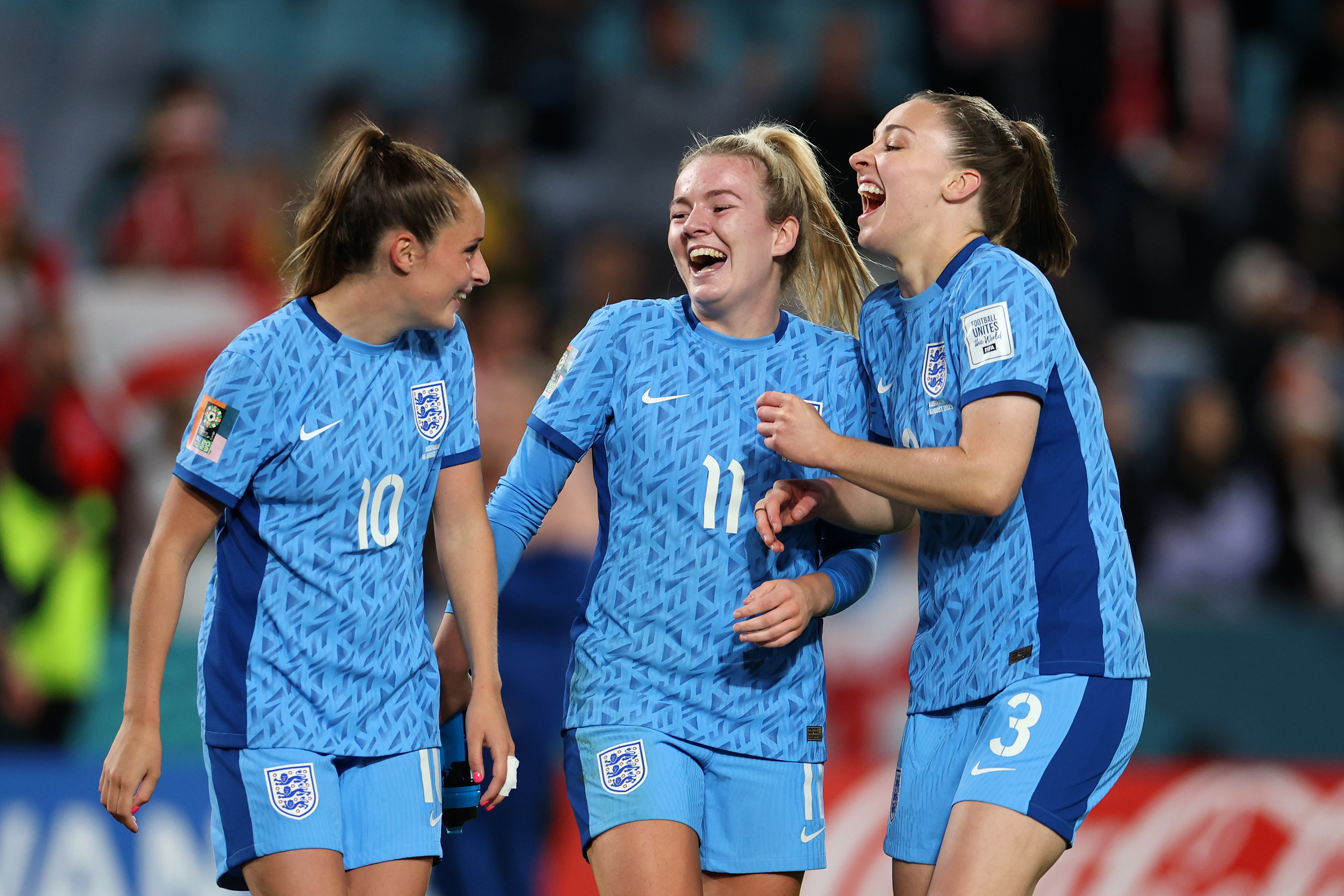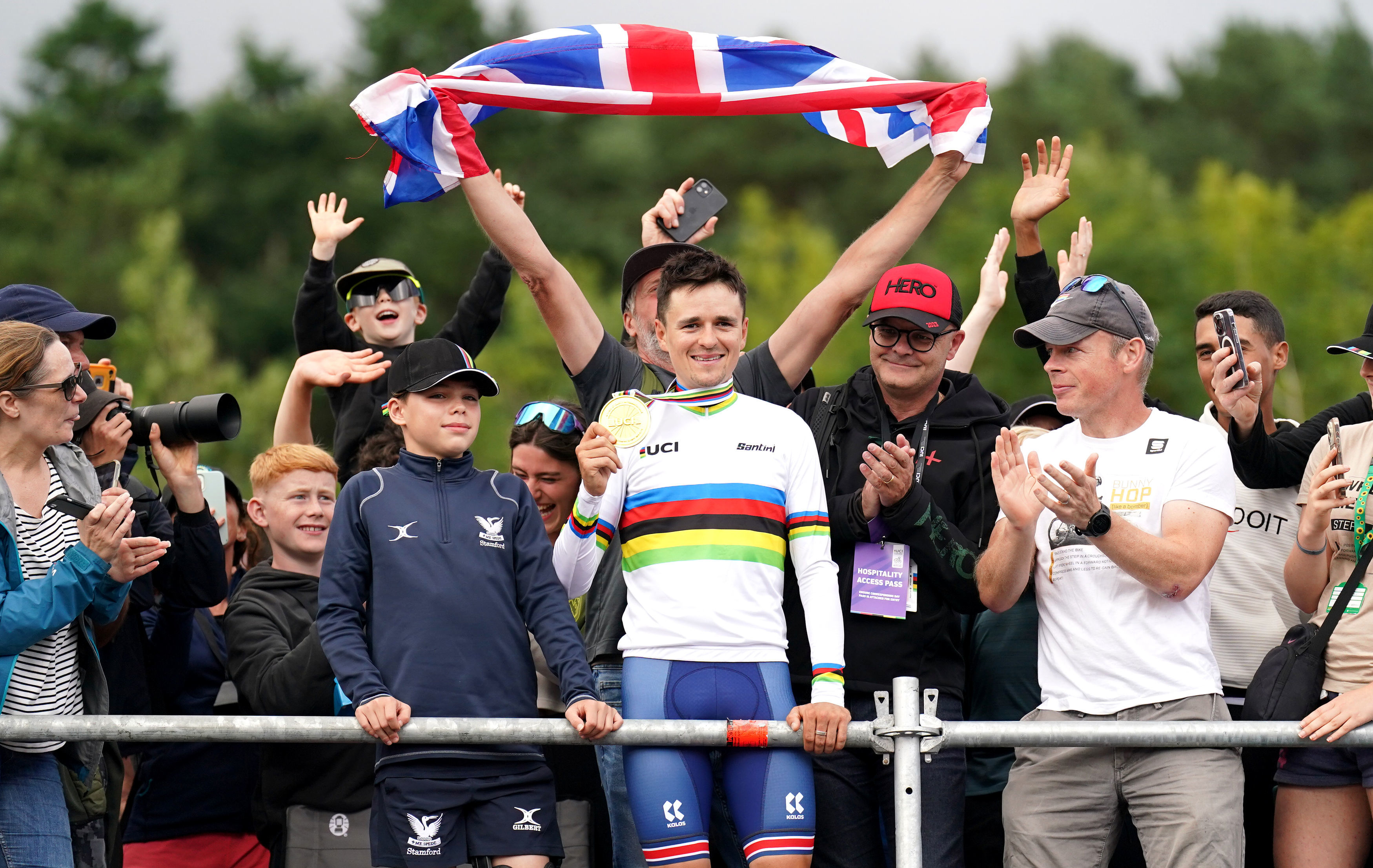
What is sport for? Easy one. We all have some sense of an answer: keeping fit and healthy, maybe even increasing your lifespan. And there’s loads more – sport can provide camaraderie and an improved sense of wellbeing.
But most of the time in this column we’re talking about the , or the Ashes, or refereeing or who’s winning the .
It is connected, obviously. But how connected? We’re not getting fitter watching all 64 games of the Women’s World Cup. Admittedly I was sure my heart rate was hitting gym levels during the semi-final with Australia yesterday, but Whoop tells me it just felt like that.
Is what we’re getting from this the same as if we were all really into watching opera, or a good TV series?
When I realised sports broadcasting was the only job I wanted, my answer was this. The reason watching sport can change the world is because it brings people together.
In supporting one team or another, one person or another, we are sharing deep emotions. In this world of stark political division, you might exchange a wry smile with someone on account of them also owning the Spurs 18/19 neptune shirt.
There are all sorts of other side benefits. Sport can make you more geographically and culturally aware – I am grateful to Tottenham for the knowledge Maribor is a place in Slovenia with impressive wine-growing heritage.

But even more, in watching the limits of human capability we are elevated. In seeing what another person, sometimes overcoming huge personal challenges, can do – in sharing the miracle of that with a crowd, we become community.
The key to wellbeing is finding a sense of purpose and feeling part of something bigger than ourselves. Simon Kuper and Stefan Szymanski argue brilliantly the value in hosting a major event is way beyond the money.
The Eurobarometer survey of happiness discovered nothing is more likely to produce a spike of positivity in the local community. Even despite the major disruption people can experience in their day-to-day lives.
My taxi driver to Glasgow airport this week wouldn’t have believed me. His city had been the centre of the UCI Cycling World Championships for two weeks – where every day produced stories and achievements to make you cry, or want to, yes, hug a random stranger.
But Logan remained unconvinced by the news of one million fans travelling to cheer home Glasgow’s Katie Archibald, Yorkshire’s Tom Pidcock and Belgium’s Lotte Kopecky.
He was appalled by the road closures, even though he hadn’t found his workload affected. And the athletes packing out hotels were no good for the economy as none of them drank!

Had he come to Stirling Castle, to the Sir Chris Hoy Velodrome, to Glentress or taken a stroll down Montrose Street – or even seen the highlights from his sofa – I believe he’d have thought differently.
There is something life-affirming about witnessing what people put themselves through in service of an improbable goal. When you stand and watch athletes fight through a new pain barrier with seemingly no sense of self-preservation, it produces a deep human response somewhere between terror and pride.
‘This is my dream,’ they later told me one by one, after collapsing in crowds of family members and coaches at finish lines across Scotland. They had had the courage to seek the limits of their potential, had beaten pain and fear. And in doing it they’d brought those around them just that little bit closer.
Watching great sport makes us more human, and more aware of our humanness. And we all need a bit of that.




















